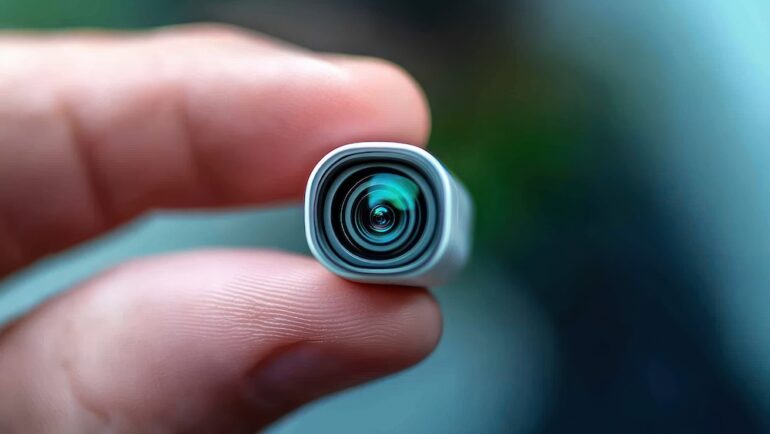When staying at an Airbnb, VRBO, or hotel accommodation, should you be concerned about whether the host is secretly watching you with hidden cameras? Are you being monitored with video, audio, or both? Possibly. It’s always a good idea to take a look around when you settle into your accommodations. Here’s a quick recap of the laws and rules, along with tips on how to detect secret monitoring.
Where are hidden cameras not allowed?
There are two levels of requirements that a host must follow. There is governmental law, and there are the policies of the hosting business.
Federal and state laws regulate the use of recording devices. Twelve states require all parties to be on record as acknowledging awareness of devices and providing consent. Thirty-eight states only require one party to be aware and give consent. A secret recording, whether audio or video, made by a third party without the knowledge of the individuals being recorded is illegal under both state and federal law.
Inside a dwelling, cameras are not allowed in rooms where a reasonable expectation of privacy exists, such as bedrooms and bathrooms.
Separately, Airbnb and VRBO require hosts not to use any cameras or recording devices inside a home. Only outdoor cameras are allowed; even then, they must not be positioned over an area where privacy is expected, such as a sauna or outdoor shower.
Independent property management companies establish their policies regarding the use of recording devices. You should read their policies before booking through them.
Trust, but verify
Laws and rules aside, you never know whether a host might secretly place a hidden device in one room or throughout the whole house you have rented. The owners may or may not be aware of the laws and hosting policies, but they should be and should abide by them.
Some monitoring devices are especially sneaky. The flashlight feature on your smartphone is your most effective tool for detecting surveillance devices. Here’s how to check for them.
- Turn off the lights and use your cell phone flashlight to scan the room. Look for a dot-shaped glint of reflection, which could be a camera lens, especially on electronic devices, audio-video equipment, mirrors, and in small holes in walls.
- A USB charger in a wall outlet should be checked, especially if it has a small, round dot on the face beside the USB port. Turn off the lights in the room and shine your cell phone light into the hole. If it reflects back to you, it is a miniature camera.
- Inspect ceiling smoke detectors. If you see a similar unexplained round dot on the face, shine a light into it and look for the glow of a camera lens.
- Perform the same light check on the face of a clock radio, which is another popular hidden camera ploy.
- Look for any furniture or electronic devices that are oddly positioned, facing the bed or the central part of a living area. Perform the light test.
- Go to the Wi-Fi network finder on your phone or laptop. It will list all the Wi-Fi networks nearby. Look for anything that says “camera” or is somehow suspicious.
What to do if you find hidden cameras or audio recording devices
If you find a hidden recording device:
- Use your smartphone to narrate a video of how and where you found it, showing the device.
- Unplug the device, if possible, without causing any damage.
- If the device is located in the bedroom or bathroom, call the police immediately.
- Notify the host organization, whether it is Airbnb, VRBO, or a hotel.
- Contact the host and inform them that you have found the issue and reported it to the appropriate authorities.
- Check out and find other accommodations.
Related – The Legal Risks of Short-Term Rental Hosting


